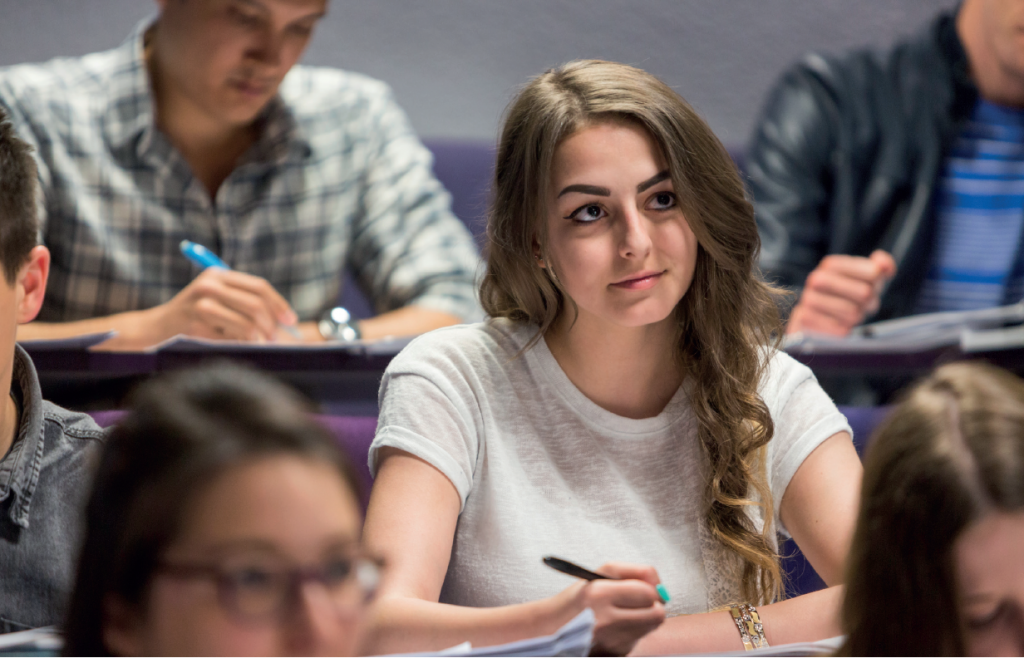Academic Programme
The students will attend the lectures with the Stirling students, but will be tutored in class by themselves and their assessment will be tailored to their needs. The academic modules which will run as part of the Journalism and Digital Media degree programmes in the Autumn semester are:
Magazine Journalism JOUU9XJ
The module explores good writing and long-form journalism. The module introduces you to classic texts with the intention of deepening your reading and broadening your skills as writers. You will have the opportunity to develop your own writing and explore a range of different styles. The texts are regarded as classics of longform journalism, and many first appeared in magazines including The New Yorker and Esquire. This module is about reading deeply and widely, analysing techniques, and deploying them appropriately in your own writing. By the end of the module, you will be able to discuss the work of great writers, and have a foundation in reading that will inform your work as journalists, writers and communicators.
Journalism Studies JOUU9X1
The module introduces students to key concepts in journalism studies, such as the issues raised by the production, distribution and reception of news. It critically examines and evaluates theoretical positions on the study of newsand the news media.
Media Studies and Industries FMSU9M1
The module provides an essential guide to University-level research and study skills, and, through facilitating an understanding of the contexts in which people work and have worked in media industries, it serves to contextualise academic works on texts, textual analysis, theory and audiences and provides underlying knowledge and skills for students who go on to take analytical and production modules in their degrees. The module uses a combination of analysis and production of different aspects of the media and this way helps to prepare our students for careers in these industries.
Mass Media Research Methods MMAPP12
The module provides students the necessary research skills to conduct academic work at Masters level. Each week of the module covers a particular area of research – qualitative, quantitative, ethnography, audiences etc. – to allow students to comprehend a wide range of methodological approaches to academic media research. The module also works as preparation for the dissertation project. Lectures as well as seminars cover main areas of conducting original independent research.
Writing for Journalists JOUU9A3
This module gives you the opportunity to develop your writing skills for a career as a professional journalist. You will deepen your understanding of  writing, grammar and style; you will explore the structure of stories and develop your skills in writing intros, briefs and short stories; you will learn techniques for researching and writing news stories, checking facts in existing news stories, analysing and re-writing them. You will also be able to develop specific skills in sourcing news, identifying and developing story ideas and handling interviews. Participants will develop an understanding of how news articles are structured, written and presented. In workshops, students will practice writing briefs, introductory paragraphs and short news stories. Attention will be paid to grammatical and language-oriented elements. On successful completion of the module, students will be able to write an appropriately structured news story quickly and accurately, one of the fundamental skills of professional journalism. Learning outcomes – By the end of the module you will be able to: demonstrate an understanding of news values, be able to apply news values to sourcing and writing stories, evaluate and prioritize information, understand the requirements of different audiences, understand story structure for different news styles and platforms, write short news stories and briefs in the appropriate journalistic style, research, conduct and write up an interview, understand of the rules of grammar and sentence construction, evaluate work for factual accuracy.
writing, grammar and style; you will explore the structure of stories and develop your skills in writing intros, briefs and short stories; you will learn techniques for researching and writing news stories, checking facts in existing news stories, analysing and re-writing them. You will also be able to develop specific skills in sourcing news, identifying and developing story ideas and handling interviews. Participants will develop an understanding of how news articles are structured, written and presented. In workshops, students will practice writing briefs, introductory paragraphs and short news stories. Attention will be paid to grammatical and language-oriented elements. On successful completion of the module, students will be able to write an appropriately structured news story quickly and accurately, one of the fundamental skills of professional journalism. Learning outcomes – By the end of the module you will be able to: demonstrate an understanding of news values, be able to apply news values to sourcing and writing stories, evaluate and prioritize information, understand the requirements of different audiences, understand story structure for different news styles and platforms, write short news stories and briefs in the appropriate journalistic style, research, conduct and write up an interview, understand of the rules of grammar and sentence construction, evaluate work for factual accuracy.
Reading Film and Television FMSU9M3
The module introduces a range of theoretical approaches to screened images, focusing on key insights and breakthrough critical ideas that have informed the study of moving images in different times and places. The module also develops critical skills in the analysis of film and television texts by considering the relationship between form and content in light of theoretical, affective and ideological approaches to moving image technologies. Weekly lectures provide an introduction to key debates and milestones in the history of screen theory and criticism, with each lecture taking up different theoretical perspectives. Weekly screenings and extracts shown in lectures will encourage every student to develop the analytical and theoretical skills required to become competent readers and critics of texts.


